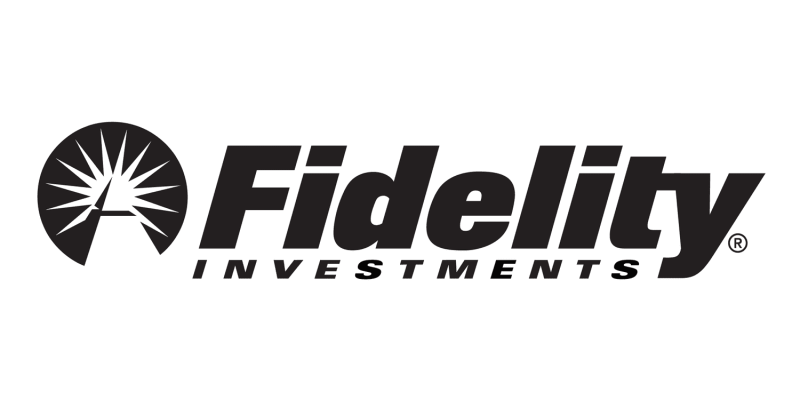Contents
We independently evaluate all recommended products and services. If you click on links we provide, we may receive compensation. Learn more.
Solo 401(k) plans allow the self-employed to enjoy the same benefits of a 401(k) plan. A solo 401(k) is actually classified as a one-participant 401(k) by the IRS but it has a variety of names that can vary by provider. In all cases, however, a solo 401(k) is meant for the business owner rather than any employees. Under the retirement plan guidelines, a business owner can set up a 401(k) and include a spouse as long as that spouse also earns income through the business.
The main complexity of a solo 401(k) is figuring out how much you can contribute as both an employee and the employer of a business. Many of the companies up for consideration in this category help you through this with calculators and worksheets. On top of this, they provide a wide range of tools for managing the investments you make through the account.
Best Solo 401(k) Companies 2023
- Best Overall: Fidelity Investments
- Best for Low Fees: Charles Schwab
- Best for Account Features: E*TRADE
- Best for Mutual Funds: Vanguard
- Best for Active Traders: TD Ameritrade
- Best for Real Estate: Rocket Dollar
Best Solo 401(k) Companies View All Best Solo 401(k) Companies
- Our Top Picks
- Fidelity Investments
- Charles Schwab
- E*TRADE
- Vanguard
- TD Ameritrade
- Rocket Dollar
- See More (3)
- Final Verdict
- What Is a Solo 401(k)?
- Who Should Get a Solo 401(k)?
- Can I Manage My Own Solo 401(k)?
- Methodology
Best Overall : Fidelity Investments
- Account Minimum: No account minimum
- Fees: No account fees, $0 commissions for U.S. stocks and ETFs, $0.65 per contract for options
Why We Chose It
When it comes to choosing a company to help you set up and manage your solo 401(k), the easy solution is to find a highly ranked broker that also happens to offer solo 401(k)s. Fidelity’s self-employed 401(k) plans are its version of a solo 401(k). The plans give you access to Fidelity’s wide range of assets and management tools to maximize your retirement savings.
Pros & Cons Pros
-
No account fees and $0 commissions on stock and ETF trades
-
Thousands of no-transaction-fee funds
-
Calculators and analysis tools to support retirement investing
-
Clear instructions on setting up and maintaining a solo 401(k)
Cons
-
Doesn’t offer a Roth solo 401(k)
-
No electronic deposit for contributions
-
No solo 401(k) loans
Overview
Fidelity has been in business since 1946 and has long ranked in the top among brokers we've reviewed in terms of assets under management. A key reason people keep opening accounts at Fidelity is that the brokerage excels at bringing the full-service experience to both its institutional and retail clients with sophisticated tools presented through a simple workflow, all at a low price and without accepting payment for order flow (PFOF) for stock and ETF trades.
When it comes to solo 401(k) plans, Fidelity provides clear instructions on how to get up and running as well as outlining what it will provide and what you need to organize yourself. Understandably, some people will be disappointed that Fidelity does not offer a Roth option to reduce post-retirement taxation. Nonetheless, those looking for the traditional solo 401(k) with tax deductions for contributions will find it easy to open an account. Another key weakness for Fidelity is the requirement to mail in contribution checks rather than submitting them through electronic fund transfers. Fidelity is also one of the providers that doesn’t allow you to take loans against your solo 401(k). Also, if you use broker assistance to place trades, the fee is $32.95 per trade. That said, the trading platforms are all very straightforward, making it easier to avoid paying for broker assistance.
Against this short list of drawbacks, Fidelity offers a self-employed 401(k) with no account minimums, no commissions on stocks and ETFs, and thousands of no-fee mutual funds. An independent investor managing a solo 401(k) with Fidelity can easily avoid paying fees. You will also have access to the full suite of Fidelity’s impressive tools, including the Fidelity Portfolio Quick Check that can help you optimize whatever investment strategy you have in mind. Should you run into trouble or want clarity on maintaining your solo 401(k) account, you can call, chat, email, or walk into any of the Fidelity Investor Centers spread across the U.S. for customer support.
Simply put, Fidelity is an excellent brokerage that also happens to offer solo 401(k) accounts.
Best for Low Fees : Charles Schwab
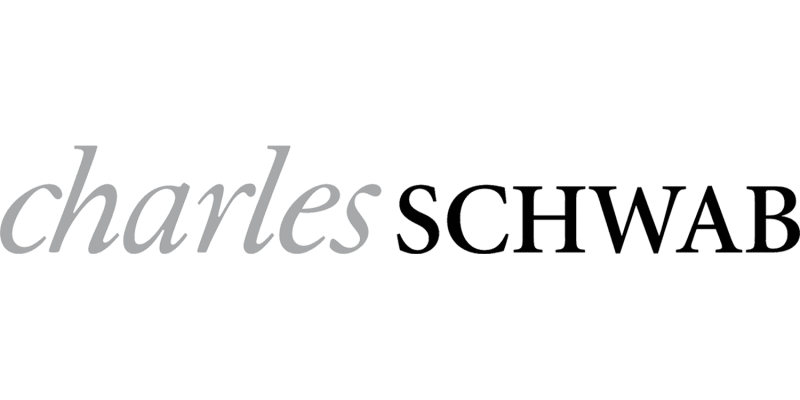
- Account Minimum: No account minimum
- Fees: No account fees, $0 commissions for U.S. stocks and ETFs, $0.65 per contract for options
Why We Chose It
Charles Schwab’s individual 401(k) is our choice for the best solo 401(k) in terms of low fees. Like Fidelity, Schwab doesn’t have account fees of any type and provides commission-free trading and thousands of no-load, no-transaction-fee funds.
Pros & Cons Pros
-
No account fees and $0 commissions on stock and ETF trades
-
Access to a robo-advisor for no additional fee
-
Thousands of no-transaction-fee funds
-
Calculators and analysis tools to support retirement investing
Cons
-
Doesn’t offer a Roth solo 401(k)
-
No electronic deposit for contributions
-
No solo 401(k) loans
Overview
Charles Schwab has been in the discount brokerage business since the inception of the industry back in 1975. It brings its discount broker pedigree to solo 401(k) accounts in the form of no fees and no account minimums. Like the other large, established brokers on this list, Schwab offers a wide range of tools and resources to support you in investing the contributions you make to your solo 401(k).
On the downside, Schwab’s individual 401(k) only comes in the traditional mold, without a Roth option. It also requires you to mail in checks and doesn’t allow for loans against the account. Using broker-assisted trades will run you $25 at Schwab, but most investors will be fine placing orders on their own across all the Schwab platforms.
If you can look beyond these shortcomings, Schwab has a lot to offer. Schwab has excellent asset screeners for stocks, ETFs, and mutual funds, in addition to a Portfolio Checkup tool that will benchmark your investments and track your risk levels. Using the screeners, you can usually find a no-load, no-fee fund to fit your purposes, further reducing any potential fees with Schwab. While users can also leverage the Idea Hub to quickly identify investment opportunities, it should be noted that this feature is tweaked more to daily trading rather than long-term retirement investing.
Most importantly, Schwab offers you a way to automate your retirement savings through the Schwab Intelligent Portfolios robo-advisor. As long as you have $5,000 in your account, you can access the robo-advisor and have your portfolio managed according to your risk tolerance and investment goals. There is a premium tier that comes with a human investment advisor, but this requires an account balance over $25,000, an initial planning fee of $300, and $30 a month thereafter.
Charles Schwab is another example of a strong brokerage that supports solo 401(k)s along with all the other account types. If you are looking at a solo 401(k) for the ability to maximize contributions but don’t want the headache of managing it, Schwab makes a compelling case with its robo-advisor feature. If you are looking for the Roth option, alternative assets, and the ability to take out loans, however, Schwab won’t be a good fit.
It is important to note that the integration of TD Ameritrade and Schwab is expected to wrap up sometime in 2023. The integration will bring the additional trading tools from TD Ameritrade’s thinkorswim platform to Schwab and existing accounts with TD Ameritrade will be migrated over to Schwab. There should be no impact in terms of the solo 401(k) accounts other than a potential upgrade to the trading platform.
Best for Account Features : E*TRADE
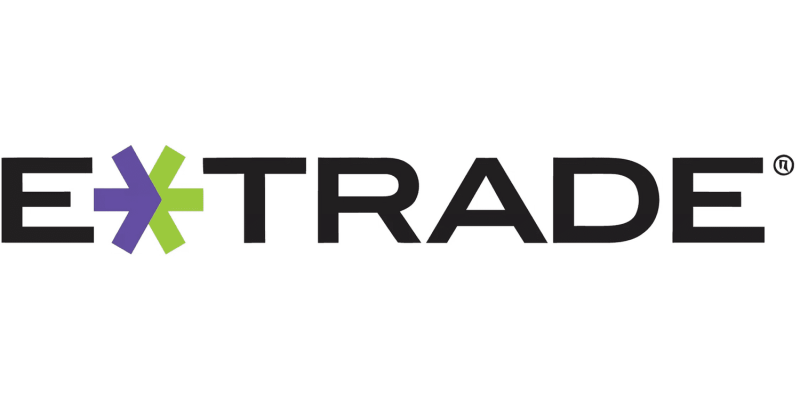
- Account Minimum: No account minimum
- Fees: No account fees, $0 commissions for U.S. stocks and ETFs, $0.50-$0.65 per contract for options (depending on trading volume)
Why We Chose It
Of all the large, established brokers offering solo 401(k)s, E*TRADE seems to be the most serious about maximizing flexibility as well as contributions. E*TRADE offers both the Roth and traditional varieties, as well as giving investors the option of a robo-advisor managed account (for a 0.30% annual fee).
Pros & Cons Pros
-
Offers both a Roth and traditional solo 401(k)
-
Allows 401(k) loans
-
Access to digital investment management
Cons
-
Small fee to access the robo-advisor
Overview
E*TRADE was one of the first online discount brokerages and has continued to lead in many areas of online trading. Morgan Stanley purchased E*TRADE in 2020, and investors at E*TRADE have benefited from a deeper pool of research and newly eliminated fees for all online mutual fund trades as of December 2022. E*TRADE is our pick for best account features because it has put the time and effort into making its solo 401(k) offering live up to the promise of flexibility allowed under the IRS guidelines.
E*TRADE calls its solo 401(k) the Individual 401(k) with Traditional and Roth 401(k) contributions. Although this is a mouthful, it allows a business owner to choose the traditional model (tax-deductible contributions) or the Roth model (tax-free distributions) or a combination of the two. This flexibility creates a situation where you can maximize contributions while diversifying your tax risks. For a high-earning, self-employed individual, this means getting access to Roth features that would otherwise be unavailable due to income thresholds.
E*TRADE builds on this by also supporting 401(k) loans and allowing you to wire money into your account rather than mailing a check. On top of this, you can just focus on the contribution side of the equation and have Core Portfolios digitally manage your account for an annual fee of 0.30% of assets under management.
If you do decide to manage your account yourself, however, E*TRADE has the full range of assets and tools to do so. E*TRADE is much more upfront about the fact that you can use more than just stocks, ETFs, and mutual funds to populate your solo 401(k), and has a robust options and futures toolset in the trading platform.
Although E*TRADE does have a $25 broker-assisted trading fee, this is in line with all the other large brokers. Beyond that, you get the same $0 commission structure and no account fees with more structural flexibility in how you fund your solo 401(k), plus the ability to take a loan if needed (although it is far from recommended to borrow against retirement accounts). With the recent elimination of mutual fund fees, E*TRADE is making a strong case to be the best company for solo 401(k)s, and not just in terms of account features.
Best for Mutual Funds : Vanguard
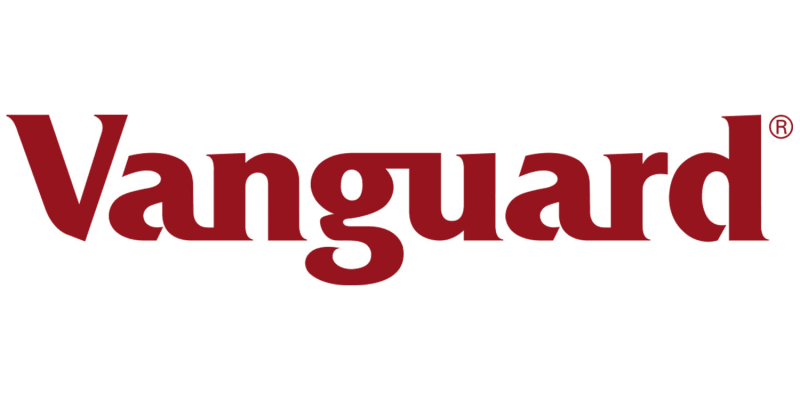
- Account Minimum: $1,000
- Fees: No account fee, $20 annually for each fund
Why We Chose It
Vanguard’s core strength is low-cost mutual funds and ETFs that deliver excellent diversification. Although a solo 401(k) at Vanguard is limited to the Vanguard funds, the company’s strength in this area makes it the best for mutual funds.
Pros & Cons Pros
-
No account fees
-
Access to Vanguard funds
-
Roth and traditional contributions
Cons
-
$20 annual fee for each fund for balances under $50,000
-
Limited asset choices
-
No 401(k) loans
Overview
Vanguard was founded in 1975 and has been the major force in the proliferation of low-cost index mutual funds. Vanguard funds are ideal when it comes to retirement accounts due to their diversification and size, which allows the company to further push down expense ratios. Vanguard’s core philosophy is one of passive investing, and this carries over to how it has set up its version of the solo 401(k), called an Individual 401(k) or i401(k) by Vanguard.
Vanguard’s solo 401(k) allows you to choose from 123 Vanguard mutual funds that have a minimum investment of between $1,000 and $3,000. For accounts under $50,000, there is a $20 per fund annual fee. The underlying assumption is that you are coming in with large dollar amounts if you are looking at a solo 401(k). The 123 funds are all quality members of the Vanguard fund family, but it is surprising to see a barrier of this nature from Vanguard when the regular brokerage accounts have access to ETFs with a $1 minimum investment.
Vanguard also does not allow loans against solo 401(k)s and, interestingly, the i401(k) is explicitly not eligible for Vanguard Personal Advisor Services. All that being said, if you are looking for mutual funds and nothing else, Vanguard still offers you some of the best in the world.
Best for Active Traders : TD Ameritrade
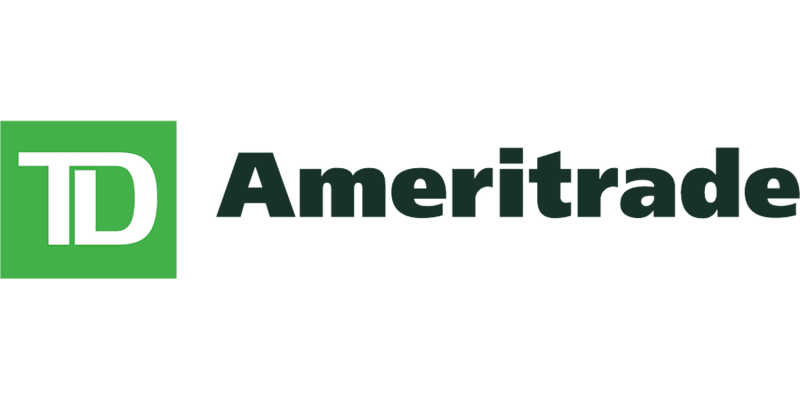
- Account Minimum: No account minimum
- Fees: No account fees, $0 commissions for U.S. stocks and ETFs, $0.65 per contract for options
Why We Chose It
Most retirement-focused accounts tend to be less actively managed. If you are looking to take a more active hand in your solo 401(k), however, TD Ameritrade has one of the most intuitive trading platforms in thinkorswim.
Pros & Cons Pros
-
Industry-leading thinkorswim platform available to all users
-
Accepts direct deposit
-
No account fees and $0 commissions on stock and ETF trades
-
Excellent educational resources
Cons
-
No 401(k) loans
-
Roth contributions have been phased out
-
Robo-advisor has been phased out
-
Transition to Schwab is imminent
Overview
TD Ameritrade is in the last months of its time as a separate entity from Charles Schwab. As the transition nears, TD Ameritrade’s approach to solo 401(k)s is leaning closer to Schwab’s with the Roth contributions being phased out as of December 2022. The same is true of 401(k) loans, which were previously offered.
Although TD Ameritrade is clearly on its way to being integrated into Schwab, its thinkorswim platform continues to stand out. TD Ameritrade’s solo 401(k) is no longer much different from Schwab’s, but it can be managed through a more active platform that is available as a web platform, desktop application, and mobile app. TD Ameritrade gives you the full range of tools, including an excellent options screener and strategy builder and a Bond Wizard that can be used to organize the fixed income portion of your portfolio.
While thinkorswim is expected to come through integration more or less complete, it does appear that the specifics around solo 401(k)s are going to be the current setup at Schwab.
Best for Real Estate : Rocket Dollar
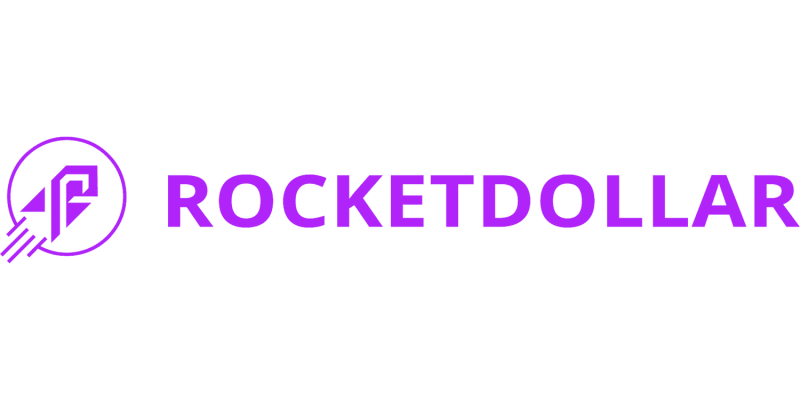
- Account Minimum: No account minimum
- Fees: $360 setup and $15 per month for silver, $600 setup and $30 per month for gold
Why We Chose It
Rocket Dollar takes the flexibility on the asset side of the solo 401(k) and turns it all the way up. Essentially you can invest in anything that you can pay for with a check or a wire transfer as long as it is not prohibited by the IRS. Of course, this includes direct ownership of real estate, but it also means a whole lot more.
Pros & Cons Pros
-
Access to alternative assets
-
Support for 401(k) loans
-
Traditional and Roth contributions
Cons
-
No safety rails
-
Setup fees and ongoing fees
Overview
Rocket Dollar is a relative newcomer, launching in 2018 specifically to streamline solo 401(k)s and self-directed IRAs. Rocket Dollar streamlines the process where your account contains a limited liability company (LLC) that invests your contributions to your solo 401(k) according to your orders. This legal structure is what requires the hefty setup fee and it turns your solo 401(k) into a capital fund that can buy any investment allowed by the IRS, rather than just the investments offered by your broker.
Rocket Dollar’s silver account costs $360 to set up and $15 per month thereafter. The silver account comes with online document storage, an investment dashboard, and other support in making sure your solo 401(k) remains compliant. The gold account gives you four free wire transfers a year, a custom name for the LLC, and a bit more assistance on the filing side. Overall, both accounts are aimed at sophisticated investors who are comfortable with alternative investments. This includes things like private equity, cryptocurrency, and private loans.
Real estate, however, is an alternative asset class that many investors feel more familiar with. Rocket Dollar is our pick for the best for real estate because it gives you the flexibility to bring your own deal, whether that is a rental unit, raw land, foreclosures, or any other type of real estate transaction that does not involve personal use or a close relative (IRS rules).
The real takeaway, however, is that Rocket Dollar gives you a solo 401(k) without any safety rails at all. This opens up a world of alternate investments that aren’t regulated in the way more traditional financial markets are. With bonds, stocks, and funds, you can still lose some or all of your investments, but there are standard metrics, audits, and disclosures that you can use to weed out most investments that don’t match your risk appetite. Rocket Dollar requires you to work harder to do due diligence, and experience is likely to play a large role in your success. If you are ready to take on that risk, the setup fee and monthly fees are more than reasonable for the compliance support.
Final Verdict
The solo 401(k) is an attractive option for self-employed people looking for a retirement account. The fact that these accounts are attractive to a specific group—self-employed people earning enough to want to better manage taxable income—has led to an uneven offering compared to more broadly applicable account types. While some brokers like Fidelity, Schwab, and TD Ameritrade treat solo 401(k)s as just another account, their excellent investment platforms can make up for the limited account features. Then you have E*TRADE, which is leaning into more of the features of the solo 401(k) with the Roth and traditional contribution options as well as the flexibility of an actively managed or digitally managed account. Finally, you have Vanguard and Rocket Dollar at opposite ends. Vanguard limits your investments to 123 well-managed funds while Rocket Dollar opens the door to any investment you can purchase with a check.
A good rule of thumb for choosing between these solo 401(k) companies is to decide how much time you want to spend actively managing your business versus how much time you want to spend actively managing your portfolio. If you have the time to commit, the more active options including Fidelity, TD Ameritrade, E*TRADE, Schwab, and, of course, Rocket Dollar will give you more control and more options. If you want to leave the portfolio to run itself as much as possible, then Schwab, E*TRADE, and Vanguard can provide a more passive approach. After that, it is down to figuring out how you want to structure the solo 401(k) and whether or not Roth contributions and 401(k) loans are important to you. When in doubt, consulting a tax professional about your specific situation is highly recommended.
What Is a Solo 401(k)?
Solo 401(k)s are specifically designed for business owners who do not have any employees (with the potential exception of a spouse). Sole proprietorships are the most obvious fit for this plan, but structured businesses like limited liability corporations and partnerships can be eligible as long as they meet the IRS requirements. A solo 401(k) allows you to contribute $22,500 in 2023 as an employee (those over 50 can contribute another $7,500 as a catch up). This can be done as a traditional contribution for the tax deduction or, if available, Roth contributions to give you tax-free distributions in the future. Solo 401(k)s are the only way to make Roth contributions for some high earners as Roth IRAs have income caps.
For the employer portion of a solo 401(k), you can contribute up to 25% of compensation to an annual maximum of $66,000 for 2023 ($73,500 if over 50). The employer contributions are tax deductible for your business, reducing the tax burden in the current year regardless of how the employee portion is structured.
It is important to note that the solo 401(k) is not the only option for the self-employed. The simplified employee pension IRA and SIMPLE IRA also apply and may be a better choice if you intend to hire employees at some point in the future.
Who Should Get a Solo 401(k)?
Solo 401(k)s are an excellent choice for business owners who do not intend to employ anyone beyond a spouse. Going the solo 401(k) route allows you to make more contributions overall and diversify your tax situation with some of your retirement savings in a Roth vehicle in addition to the traditional 401(k).
Although the solo 401(k) works best for high earners who can maximize contributions to reduce their business and personal taxes, it can also play a key role for those with a side hustle. You can contribute 100% of your side income into a solo 401(k) up to the limit of $22,500. It is important to note that the limit is by individual, so anything you are contributing to a 401(k) at the day job comes out of that limit. In this arrangement, the solo 401(k) acts as a bonus retirement account.
Can I Manage My Own Solo 401(k)?
You can absolutely manage your own solo 401(k). Unlike day trading, retirement investing is more about the initial investment mix, patience, and regular maintenance. The educational resources available to investors specifically looking to invest for retirement are too numerous to count. More importantly, all the companies reviewed above—with the exception of Rocket Dollar—offer you the analysis tools and ongoing support to create and maintain a well diversified retirement portfolio.
At a minimum, you will find a suggested portfolio mix based on your stated timeframe and risk tolerance and a tool to run a checkup type analysis on your current holdings. Even the dreaded rebalancing of a portfolio is incredibly simple now thanks to improvements in brokerage platforms. If you don’t want to manage your solo 401(k) for whatever reason. however, you can use a robo-advisor like E*TRADE’s Core Portfolios to do the work for you.
Methodology
Solo 401(k)s are important investment vehicles that allow self-employed individuals and business owners an opportunity to save for retirement. We reviewed several providers of solo 401(k) accounts based on pricing, investment options, account features, trading platforms, and the ability to make Roth contributions or take out a 401(k) loan to determine our list of the top platforms in the industry.

Article Sources
-
Internal Revenue Service. "One-Participant 401(k) Plans."
-
Fidelity. "Self-employed 401(k)."
-
Fidelity. "Understanding the self-employed 401(k)."
-
Fidelity. "Brokerage Commission and Fee Schedule."
-
Charles Schwab. "Company History."
-
Charles Schwab. "Small Business Retirement."
-
Morgan Stanley. "E*TRADE from Morgan Stanley Eliminates Commissions for All Mutual Funds on Platform".
-
E*TRADE. "Individual 401(k) Plan with Traditional and Roth 401(k) contributions."
-
TD Ameritrade. "Maximum contribution, minimal work: the Solo 401(k)."
-
Rocket Dollar. "The Solo 401(k) from Rocket Dollar."

